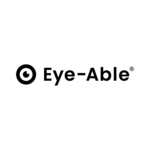DUBLIN--(BUSINESS WIRE)--The "Automotive Intelligent Cockpit Platform Research Report, 2022" report has been added to ResearchAndMarkets.com's offering.
Research on Intelligent Cockpit Platforms: Intelligent cockpits rush into a new era of 'cross-domain integration and layered software design'
Cockpit hardware platform field: Faster cross-domain integration layout
Driven by centralization of EEA, high-computing-power chips and improved software development capabilities, cockpit domain is constantly integrating new functions, and the intelligent cockpit is evolving from a single domain to cross-domain integration, such as integration of cockpit domain and ADAS domain. Some enterprises even have embarked on R&D layout of vehicle-cloud integrated multi-domain central computing platforms.
At the beginning of 2022, Thundersoft released a new Intelligent cockpit solution. Based on Qualcomm SA8295, it is a one-core multi-screen cockpit domain control solution. With high computing power and multiple cameras, it integrates low-speed assisted driving and cockpit domain to better support 360 surround view and smart parking.
In addition, Thundersoft uses Qualcomm 8795 chip to deploy cockpits and domain integration in the field of autonomous driving. Mass production is planned for 2024.
In 2021, Bosch China's first cockpit domain control product was mass-produced. At present, Bosch is actively exploring a vehicle-cockpit-driving integration platform that conforms to the central E/E architecture. The hardware will be designed in the form like a pluggable blade. Combined with a cross-domain SOA platform, a set of middleware meet the demand of both intelligent driving and intelligent cockpits to integrate information between all domains of the vehicle, allocate computing power, and promote the application of cross-domain integration.
In April 2022, Desay SV released the first-generation mass-produced in-vehicle intelligent computing platform 'Aurora', which integrates core functional domains such as intelligent cockpits, intelligent driving and connected services, realizes cross-domain integration from 'domain control' to 'central computing', and features intelligent computing, multi-domain integration, intelligent expansion (flexible configuration of 'building blocks'), intelligent integration (designed for the open SOA platform), ASIL D, environmental protection and sustainability.
Denso is actively making breakthroughs in the fields of domains, cross-domain and even vehicle-cloud integration. In the future, its business scope will expand to the infrastructure and public sectors, and it will connect vehicles with cloud and infrastructure. In terms of cross-domain controllers, Denso will strengthen software development and cooperate with OEMs and technology companies.
Cockpit software platform: SOA and layered design
In the context of software-defined vehicles, software and hardware decoupling has become an inevitable trend on the basis of SOA. Cockpit software platforms are gradually evolving from fragmentation to modular platformization, and tending to layered design (that is, OS, middleware, basic software platform, application software platform, and application ecological services are distributed at different levels). Software technology companies have launched cockpit software platforms.
Through the standardization, modularization and reusability of software platforms, the software development cycle can be significantly reduced, and the development process can be simplified. At the same time, application software and services can be customized upon demand, allowing users to enjoy differentiated functions and experience. With the continuous evolution of EEA, software platforms are moving from single-domain to multi-domain/cross-domain and even vehicle-cloud integrated software platforms.
In April 2022, Neusoft Reach released the domain controller software development platform NeuSAR DS (Domain System), which can provide complete underlying software systems and virtualization on the domain controller SOC and MCU. It covers the software stack and tool chain required by the entire development process as well as engineering adaptation for typical chips, so as to realize the SOA design and development from the perspective of the whole vehicle. It allows developers to complete entire development process in a tool chain, and enables upstream and downstream development processes to be more closely coordinated.
At CES 2022, Continental demonstrated how software and powerful IT infrastructure based on Continental Automotive Edge Framework enable new functions and are transforming mobility. This modular hardware and software platform connects vehicle to cloud and features numerous options to develop, supply and maintain software-intensive system functions. The platform also provides a software-intensive automotive architecture development environment for automakers and partners, greatly shortening development cycles and reducing development costs.
In 2021, ArcherMind launched the intelligent domain control Fusion SOA platform, which deeply customizes AUTOSAR protocol stack based on NXP32G (body domain) and Qualcomm 8155 (intelligent cockpit domain) to achieve cross-domain integration and global SOA services. It is compatible with QNX, Android, Linux, etc.
In 2021, Enjoy Move Technology mass-produced multi-domain integration software platform EMOS which integrates the enhanced AutoSAR AP (with self-developed deterministic scheduling and communication) and conventional CP. Covering the vehicle central computing unit, autonomous driving domain control and cockpit domain control (the key functional safety part), the entire architecture is oriented to SOA, and all of its modules and services are developed through a standardized model to maximize compatibility between services and other modules.
OEMs: Enhanced self-research capabilities, improved rights in cockpit development
According to the current layout, OEM cockpit system solutions are transferring from Tier 1 supplies to multi-supplier joint development and flattened cooperation. With the continuous enhancement of self-research capabilities, OEMs will have a greater right to speak in the field of customization such as cockpit system development.
In terms of products, OEM cockpit single-domain control products have been mass-produced and installed. OEMs are vigorously deploying cross-domain integration, central computing platforms and self-developed OS/SOA platform, gradually moving towards SOA-based intelligent cars.
At the software level, OEMs have announced that they will develop automotive operating systems and basic software platforms, such as Volkswagen VW.OS, Mercedes-Benz MB.OS, Hyundai CCOS, Toyota Arene, etc.
For intelligent cockpit suppliers, flexible supply, modularization and standardized platforms will be the future focus of their layout. Bosch has pointed out that it will focus on the common functions below the middle layer in terms of software, adopt a modular approach to iterate layer by layer from the bottom up, and realize the replacement and iteration of chips and applications through software and hardware standardized interfaces.
Key Topics Covered:
Chapter 1 Overview of Intelligent Cockpit Platforms
1.1 Status Quo of Intelligent Cockpit Platforms
1.2 Trends of Intelligent Cockpit Platforms
Chapter 2 Intelligent Cockpit Hardware Platforms
2.1 Status Quo and Trends of Intelligent Cockpit Hardware Platforms
2.2 Intelligent Cockpit Processors
Chapter 3 Intelligent Cockpit Software Platforms
3.1 Composition and Trends of Intelligent Cockpit Software Platforms
3.2 Major Automotive Operating Systems and Vendors
Chapter 4 Intelligent Cockpit Platform Layout of Major OEMs
4.1 Summary of Cockpit Platform Layout of OEMs
4.2 Tesla
4.3 BMW
4.4 Volkswagen
4.5 Audi
4.6 Mercedes-Benz
4.7 Ford
4.8 Stellantis
4.9 BYD
4.10 Great Wall
4.11 SAIC
4.12 GAC
4.13 Geely
4.14 FAW Hongqi
4.15 BAIC
4.16 Changan Automobile
4.17 Neta
4.18 Li Auto
4.19 Xpeng
4.20. Intelligent Cockpit
4.21 Human Horizons
4.22 Other OEMs
4.22.1 NIO's Intelligent Cockpit
4.22.2 Leapmotor's Intelligent Cockpit
4.22.3 Leapmotor Builds an Evolvable Intelligent Cockpit
4.22.4 Dongfeng Voyah's Intelligent Cockpit
4.22.5 Evergrande Auto Releases Its Intelligent Cockpit
Chapter 5 Global Intelligent Cockpit System Integrators
5.1 Harman
5.2 Visteon
5.3 FORVIA
5.4 Aptiv
5.5 Bosch
5.6 Continental
5.7 Denso
5.8 Panasonic
Chapter 6 Chinese Intelligent Cockpit System Integrators
6.1 Desay SV
6.2 Neusoft
6.3 Hangsheng Electronics
6.4 Joyson Electronics
6.5 Huawei
6.6 Thundersoft
6.7 NavInfo
6.8 ArcherMind
6.9 Kotei
6.10 BDStar Intelligent & Connected Vehicle Technology
6.11 ADAYO
6.12 Other Intelligent Cockpit Suppliers
6.12.1 SenseAuto Cabin
6.12.2 Intelligent Cockpit System of E-Planet Technologies
6.12.3 Rockchip
For more information about this report visit https://www.researchandmarkets.com/r/m5z8nw
Contacts
ResearchAndMarkets.com
Laura Wood, Senior Press Manager
press@researchandmarkets.com
For E.S.T Office Hours Call 1-917-300-0470
For U.S./CAN Toll Free Call 1-800-526-8630
For GMT Office Hours Call +353-1-416-8900










